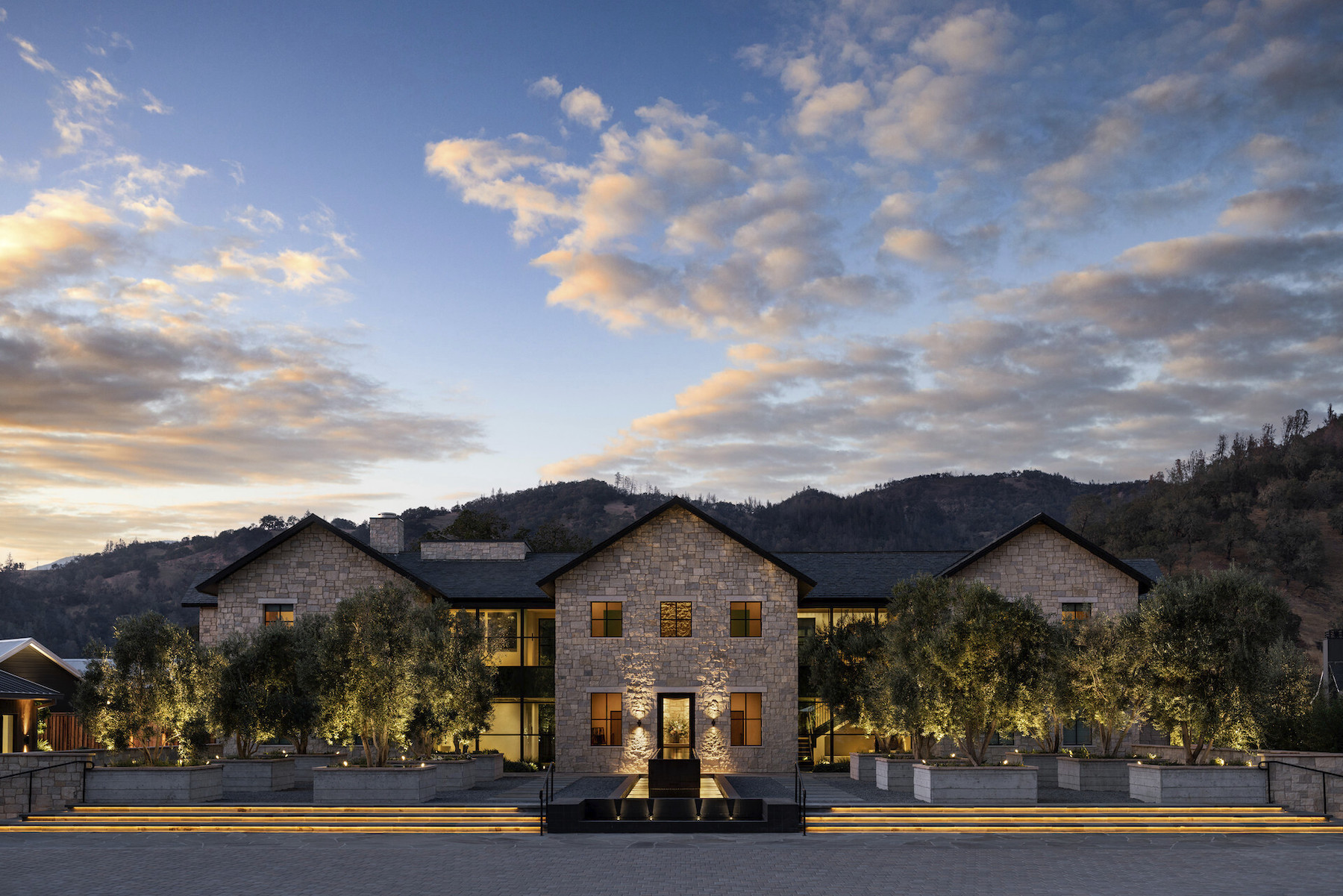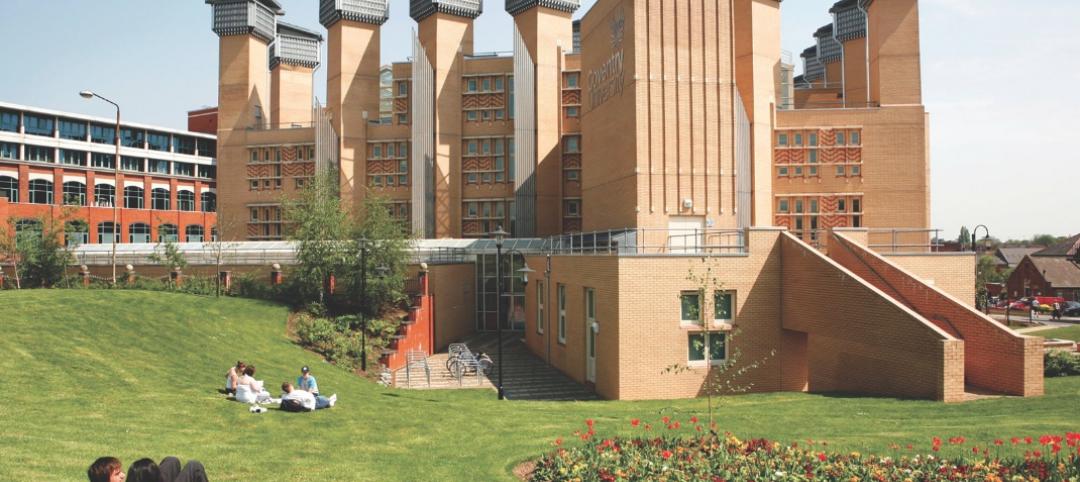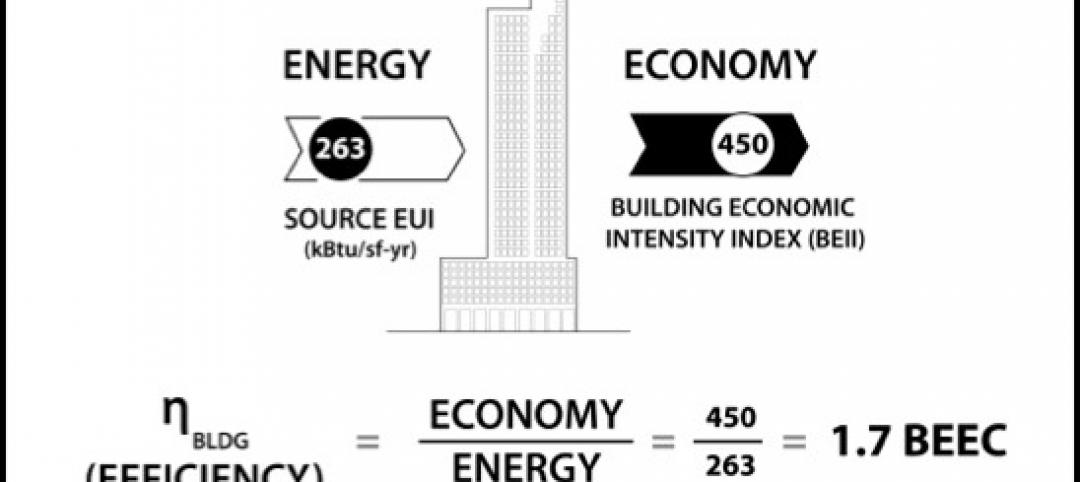Earlier this month, the real estate investment trust SunStone Hotel Investors disclosed that it had contracted to acquire the new Four Seasons Resort Napa Valley, an 85-room luxury hotel located in Calistoga, Calif., for $177.5 million. Subsequent news reports pegged the price at closer to $175 million, which if consummated would still be the second-highest per-key hospitality purchase in the U.S.
With this acquisition, SunStone claims that it would own 24 percent of the luxury-market hotel rooms in northern California’s wine country, and 33 percent of the luxury market’s event space.
For the seller, Boston-based private equity firm Alcion Ventures, this acquisition represents the culmination of a decade-long trek that included construction delays (ground broke on the hotel in 2014) and different AEC project team members along the way.
AN ORGANIC WINERY DISTINGUISHES THIS RESORT
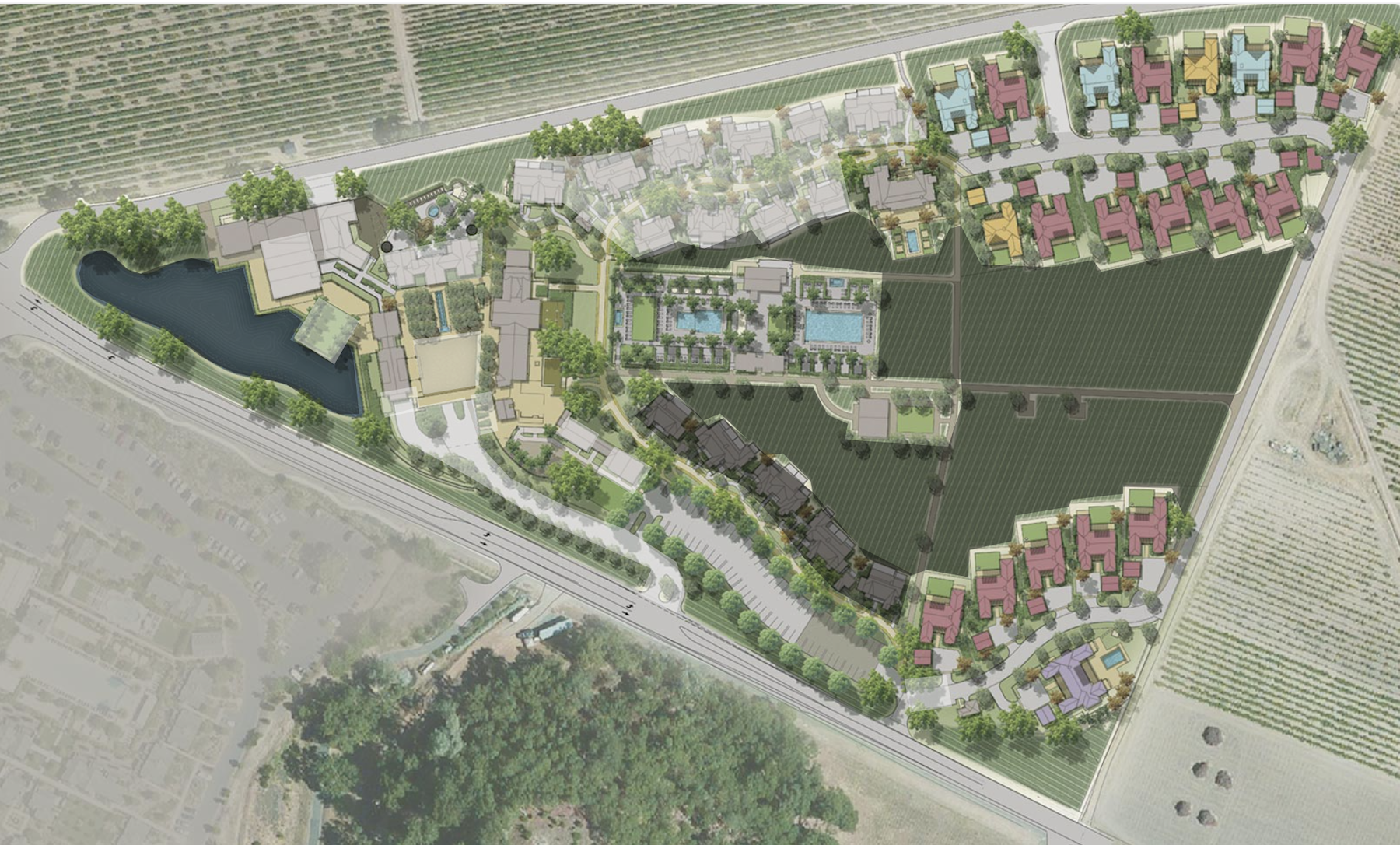
What makes this 22.5-acre property unique is that is the only Napa Valley resort with a working winery and vineyard on its premises. Elusa Winery, which specializes in Cabernet Sauvignon, sits on 4.7 acres and includes, along with its growing fields, a 4,960-sf production room, a 698-sf private tasting room, a 1,018-sf public tasting room, and 3,180 sf for barrel storage. The hotel and winery are adjacent to 20 two-, three-, and four-bedroom private residences whose asking price started at $3.5 million. (The residences are not part of the acquisition.)
The hotel, with 67 guest rooms and 18 suites, had a soft opening on October 1 and debuted officially a month later. Developed by Bald Mountain Development, which has bases in Aspen, Colo., and in Napa, the hotel was designed by Hirsch Bednar Associates (which specializes in hospitality) with Erin Martin Design, and was completed by Suffolk, which took over the project’s construction management duties in 2019 from another contractor that had built other Four Seasons resorts but wasn’t meeting the client’s quality expectations on the Napa project, according to Jim Stanley, Suffolk’s COO.
MODEST BEGINNINGS
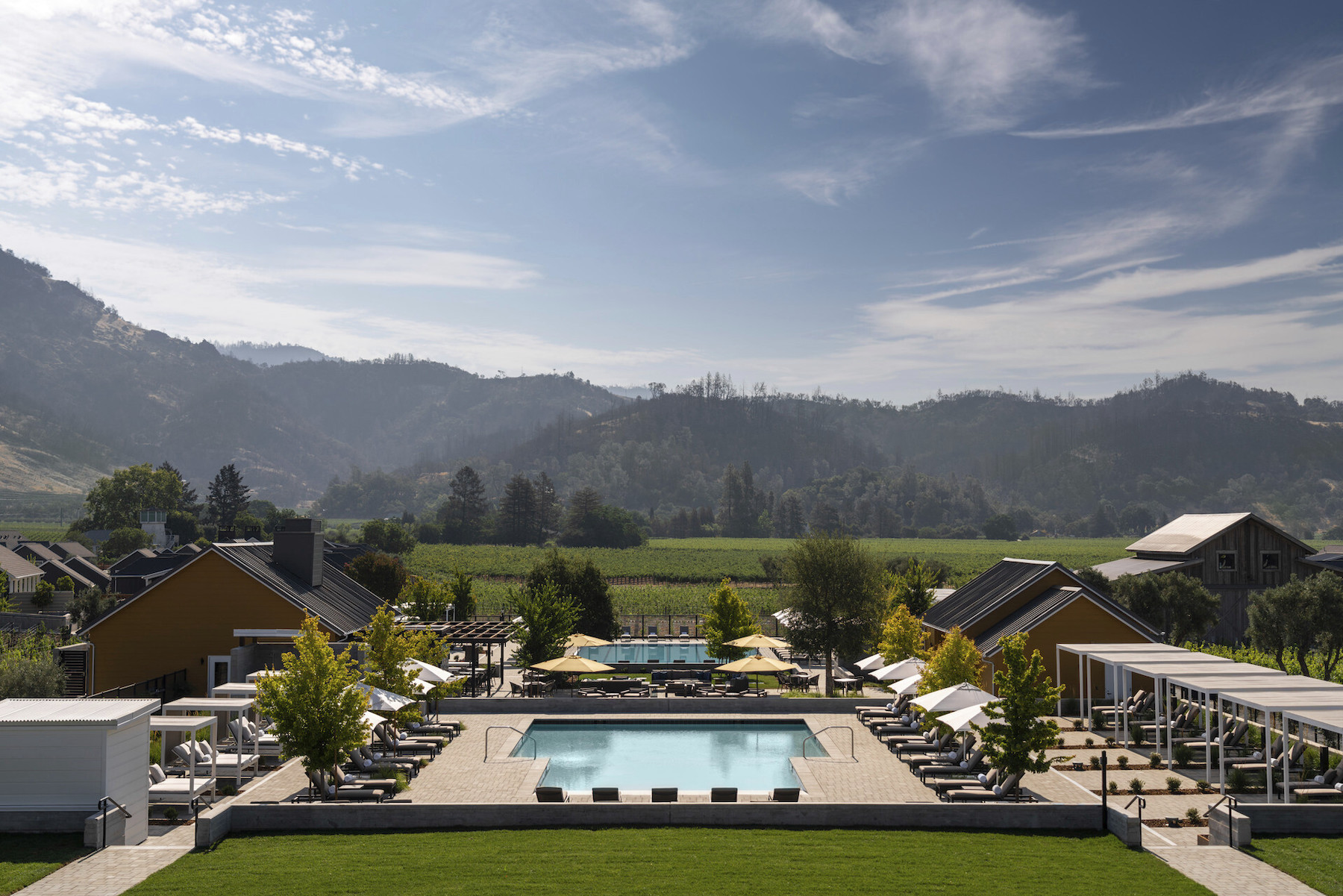
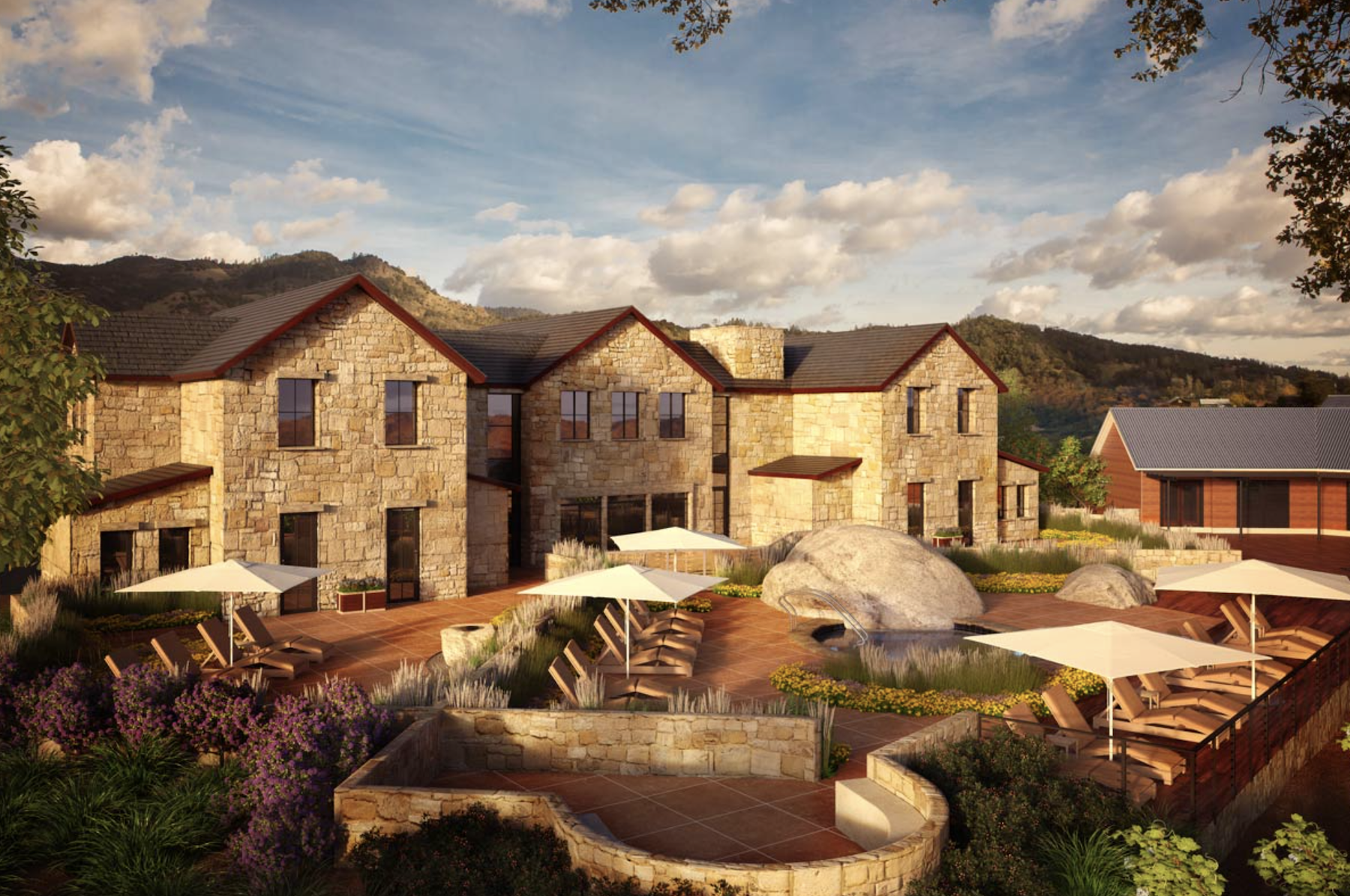
Suffolk built the Four Seasons Resort and Residences in Boston, and was hired for the Napa project at the suggestion of Alcion Ventures. “When we were asked to step in, we essentially brought in people from across the U.S., and were able to ramp up our team in two to three months,” said Stanley. While most of the Napa property’s structures had been topped off when Suffolk arrived, “there was a lot of corrective work required to meet Four Seasons’ standards,” Stanley recalled in a video interview with BD+C yesterday. For example, nearly all the structures on the property needed to be reskinned, he said.
Several news reports peg the cost of developing and building Four Seasons Napa above $200 million. The resort’s amenities include two pools, two restaurants, fire pits, a 6,079-sf indoor spa and 6,850-sf outdoor spa; a 4,316-sf fitness center, and 16,341 sf of indoor/outdoor meeting spaces, with seven rooms. (The resort is positioning itself as a wedding destination.)
This luxurious resort bears only a faint resemblance to this property’s humble beginnings. From 1993 through 2012, it was home to Silver Rose Resort, a bed and breakfast with 20 rooms. Winemaker Thomas Rivers Brown took the reins of the operation in 2012, two years after Elusa was formed and started producing wine, initially with grapes from other vineyards. Brown reportedly oversaw the design of the new winery, which has an operational partnership with Four Seasons Resort. The winery opened its tasting room in September.
Related Stories
| Jan 28, 2014
2014 predictions for skyscraper construction: More twisting towers, mega-tall projects, and 'superslim' designs
Experts from the Council on Tall Buildings and Urban Habitat release their 2014 construction forecast for the worldwide high-rise industry.
| Jan 28, 2014
16 awe-inspiring interior designs from around the world [slideshow]
The International Interior Design Association released the winners of its 4th Annual Global Excellence Awards. Here's a recap of the winning projects.
| Jan 21, 2014
Comcast to build second Philadelphia skyscraper, with Norman Foster-designed tower [slideshow]
The British architect last week unveiled his scheme for the $1.2 billion, 59-story Comcast Innovation and Technology Center, planned adjacent to the Comcast Center.
| Jan 21, 2014
2013: The year of the super-tall skyscraper
Last year was the second-busiest ever in terms of 200-meter-plus building completions, with 73 towers, according to a report by the Council on Tall Buildings and Urban Habitat.
| Jan 13, 2014
Custom exterior fabricator A. Zahner unveils free façade design software for architects
The web-based tool uses the company's factory floor like "a massive rapid prototype machine,” allowing designers to manipulate designs on the fly based on cost and other factors, according to CEO/President Bill Zahner.
| Jan 11, 2014
Getting to net-zero energy with brick masonry construction [AIA course]
When targeting net-zero energy performance, AEC professionals are advised to tackle energy demand first. This AIA course covers brick masonry's role in reducing energy consumption in buildings.
Smart Buildings | Jan 7, 2014
9 mega redevelopments poised to transform the urban landscape
Slowed by the recession—and often by protracted negotiations—some big redevelopment plans are now moving ahead. Here’s a sampling of nine major mixed-use projects throughout the country.
| Dec 31, 2013
BD+C's top 10 stories of 2013
The world's tallest twisting tower and the rise of augmented reality technology in construction were among the 10 most popular articles posted on Building Design+Construction's website, BDCnetwork.com.
| Dec 27, 2013
Grand Cancun to be first net-zero energy luxury eco-tourism resort
Using a marine platform concept instead of an artificial island, the development will create more space with less impact in the fragile marine ecosystem.
| Dec 20, 2013
Can energy hogs still be considered efficient buildings? Yes, say engineers at Buro Happold
A new tool from the engineering firm Buro Happold takes into account both energy and economic performance of buildings for a true measure of efficiency.


